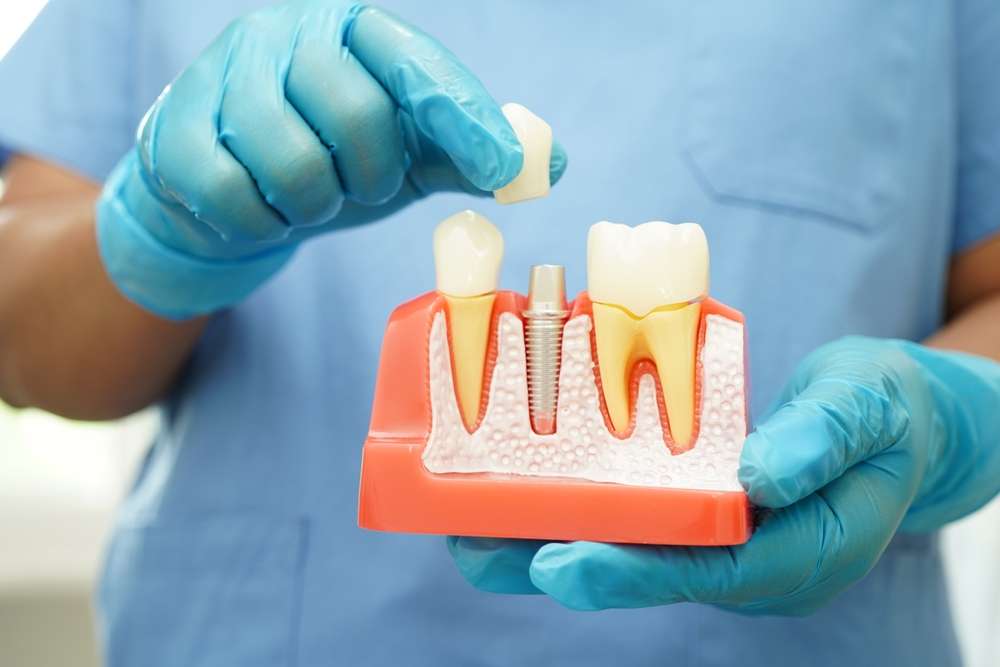Comfortable Alternatives to Traditional Dentures
Missing teeth can significantly impact your quality of life, affecting everything from eating and speaking to confidence in social situations. While traditional dentures have long been the go-to solution, modern dental technology offers numerous comfortable alternatives that provide better fit, functionality, and aesthetics. These innovative options range from implant-supported prosthetics to flexible partial dentures, each designed to address specific needs and preferences while offering improved comfort over conventional removable dentures.

2025 Guide: Exploring Affordable Options For Fixing Missing Teeth
The landscape of tooth replacement has evolved dramatically, offering patients multiple pathways to restore their smiles without breaking the bank. Dental implants, while initially more expensive, often prove cost-effective long-term due to their durability and minimal maintenance requirements. Mini dental implants present a more affordable alternative to traditional implants, requiring less invasive surgery and shorter healing times. Partial dentures with precision attachments offer another budget-friendly option, providing better stability than conventional clasps while remaining removable for easy cleaning.
Flexible dentures made from thermoplastic materials have gained popularity for their comfort and natural appearance. These alternatives eliminate the need for metal clasps, reducing irritation and providing a more aesthetic solution. Additionally, overdentures that snap onto existing tooth roots or implants offer improved retention and chewing efficiency compared to traditional full dentures.
What Are The Most Comfortable Ways To Replace Missing Teeth?
Comfort in tooth replacement largely depends on stability, proper fit, and biocompatibility of materials used. Dental implants consistently rank highest for comfort because they integrate with the jawbone, providing a foundation that feels most like natural teeth. The titanium posts fuse with bone tissue through osseointegration, creating a permanent anchor that eliminates the movement and pressure points common with removable options.
Implant-supported bridges offer exceptional comfort for multiple missing teeth, distributing chewing forces evenly across the jaw. For those seeking removable options, precision attachment dentures provide superior comfort through custom-fitted connectors that eliminate the rocking motion of traditional dentures. Soft-lined dentures with cushioned bases reduce pressure on sensitive gum tissue, while flexible partial dentures adapt better to mouth movements during speaking and eating.
Understanding Removable Dentures: Pros and Cons of Dental Clips
Removable dentures with clips, also known as clasp-retained partial dentures, remain a popular choice due to their affordability and non-invasive nature. The primary advantage lies in their ability to be removed for cleaning and maintenance, making oral hygiene more manageable than with fixed alternatives. Clips provide mechanical retention by engaging undercuts on adjacent teeth, offering reasonable stability for daily functions.
However, traditional metal clips can create aesthetic concerns, particularly when visible during smiling or speaking. They may also cause wear on supporting teeth over time and can feel bulky or uncomfortable initially. The clips require periodic adjustment as supporting teeth shift, and the denture base may need relining as gum tissues change shape. Despite these drawbacks, modern clip designs have improved significantly, with some featuring tooth-colored materials that blend more naturally with existing teeth.
| Treatment Option | Provider Type | Cost Estimation |
|---|---|---|
| Traditional Dentures | General Dentist | $1,200 - $3,000 |
| Flexible Partial Dentures | Prosthodontist | $1,500 - $4,000 |
| Mini Dental Implants | Oral Surgeon | $500 - $1,500 per implant |
| Full Dental Implants | Periodontist | $3,000 - $6,000 per implant |
| Implant-Supported Overdentures | Specialist Clinic | $15,000 - $30,000 |
| Precision Attachment Dentures | Prosthodontist | $2,500 - $6,000 |
Prices, rates, or cost estimates mentioned in this article are based on the latest available information but may change over time. Independent research is advised before making financial decisions.
Factors Influencing Treatment Selection
Choosing the right tooth replacement option involves considering multiple factors beyond comfort and cost. Bone density plays a crucial role in implant candidacy, as insufficient bone may require grafting procedures or alternative approaches. Overall health conditions, including diabetes and autoimmune disorders, can affect healing and treatment success rates.
Lifestyle factors also influence decision-making. Active individuals may prefer fixed solutions that won’t shift during physical activities, while others may appreciate the convenience of removable options for cleaning. Age considerations include the long-term durability of treatments and the ability to undergo surgical procedures safely.
Maintenance and Long-Term Care
Proper maintenance varies significantly among different tooth replacement options, affecting both comfort and longevity. Implant-supported restorations require similar care to natural teeth, including regular brushing, flossing, and professional cleanings. Removable dentures need daily cleaning with specialized products and overnight soaking to prevent bacterial buildup.
Flexible dentures require gentle handling and specific cleaning solutions to maintain their properties. Regular dental visits become essential for all options, allowing for adjustments, repairs, and monitoring of surrounding tissues. Understanding maintenance requirements helps patients make informed decisions based on their ability to commit to proper care routines.
Modern alternatives to traditional dentures offer unprecedented comfort and functionality for individuals dealing with tooth loss. From advanced implant systems to innovative flexible materials, these options provide solutions tailored to diverse needs and budgets. Consulting with dental professionals helps determine the most suitable approach based on individual circumstances, ensuring optimal comfort and long-term satisfaction with the chosen treatment.




